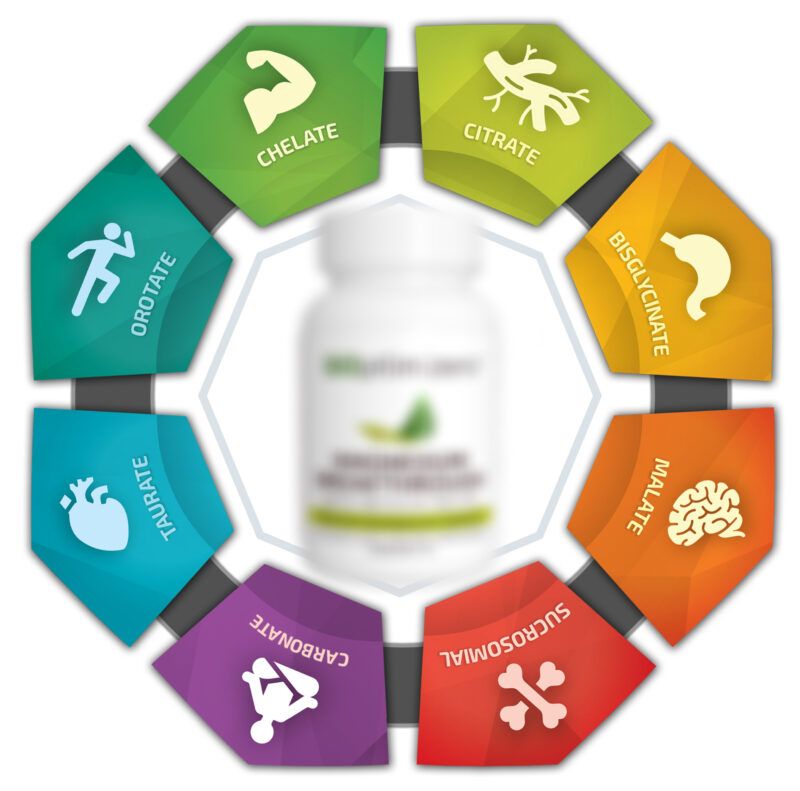 Bronchial Asthma Natural Treatment: Discover Effective, Natural Remedies for Asthma Relief
Bronchial Asthma Natural Treatment: Discover Effective, Natural Remedies for Asthma Relief
Bronchial asthma is a chronic respiratory condition that affects millions of people worldwide. According to the World Health Organization (WHO), over 260 million people suffer from asthma, making it one of the most prevalent chronic diseases globally. Characterized by inflamed and narrowed airways, asthma can cause wheezing, coughing, chest tightness, and shortness of breath symptoms. While conventional treatments like inhalers and medications are vital, many people are now exploring natural remedies to complement these treatments. This article delves into effective, scientifically-backed natural treatments for bronchial asthma and introduces how Magnesium Breakthrough can be crucial in managing asthma symptoms.
Understanding Bronchial Asthma
Bronchial asthma is a condition where the airways in the lungs become inflamed and constricted, making it difficult to breathe. Triggers can include allergens like pollen, dust mites, and pet dander, and irritants like smoke, pollution, and strong odors. Additionally, cold air, physical activity, and respiratory infections can exacerbate asthma symptoms. The goal of asthma treatment is to manage symptoms, prevent attacks, and keep the lungs healthy.
The Importance of Natural Treatments
While traditional asthma medications like corticosteroids and bronchodilators are essential for managing acute symptoms, natural treatments can offer additional benefits by addressing the root causes of inflammation and improving overall lung health. Integrating these natural remedies into your asthma management plan can help reduce reliance on medications and enhance your quality of life.
1. Environmental Control: Your First Line of Defense
Creating an asthma-friendly environment is crucial to minimizing exposure to common asthma triggers. According to the Centers for Disease Control and Prevention (CDC), indoor allergens and pollutants contribute to asthma flare-ups. Simple steps like using hypoallergenic bedding, maintaining humidity levels between 30% and 50%, and keeping your home smoke-free can significantly reduce asthma symptoms. Consider investing in air purifiers with HEPA filters to remove airborne allergens and pollutants from your living space.
2. Herbal Remedies: Nature’s Solution to Inflammation

Herbs have been used for centuries to treat respiratory conditions, and several have shown promise in managing bronchial asthma:
– Butterbur: A 2014 study published in Allergy and Asthma Proceedings found that butterbur can reduce inflammation in the airways, making breathing easier.
– Ginkgo Biloba: Known for its antioxidant properties, ginkgo biloba can help reduce airway hyperresponsiveness, a key factor in asthma attacks.
– Turmeric: Curcumin, the active compound in turmeric, has potent anti-inflammatory properties. A study published in the Journal of Clinical and Diagnostic Research showed that turmeric supplementation could reduce asthma symptoms by lowering inflammation in the airways.
3. Magnesium: The Miracle Mineral
Magnesium is essential for many bodily functions, including muscle relaxation, nerve function, and reducing inflammation. Research has shown that magnesium deficiency is common among asthma sufferers and may contribute to bronchoconstriction. A study published in the American Journal of Respiratory and Critical Care Medicine found that intravenous magnesium sulfate could rapidly improve asthma symptoms in acute attacks by relaxing the bronchial muscles.
This is where Magnesium Breakthrough comes in. This premium supplement provides a full spectrum of magnesium forms easily absorbed by the body, including magnesium citrate, magnesium bis-glycinate, and magnesium malate. Unlike other supplements that only offer one or two types of magnesium, Magnesium Breakthrough delivers all seven critical forms in one product, ensuring comprehensive support for your respiratory health.
4. Breathing Exercises: Control Your Breath, Control Your Asthma

Breathing exercises can be a game-changer for those with bronchial asthma. Techniques like the Buteyko method focus on reducing hyperventilation and improving oxygen uptake. A study conducted by the Journal of Asthma revealed that patients practicing the Buteyko method experienced a significant reduction in asthma symptoms and a decreased need for medication. Diaphragmatic breathing, which involves breathing deeply into the abdomen rather than the chest, can also help improve lung function and reduce the frequency of asthma attacks.
5. Dietary Considerations: Food as Medicine
The food you eat plays a crucial role in managing asthma. A diet rich in anti-inflammatory foods can help reduce airway inflammation and improve lung function. Key dietary strategies include:
 – Omega-3 Fatty Acids: Omega-3s are found in fatty fish like salmon and mackerel and have been shown to reduce inflammation and improve lung function in asthma patients.
– Omega-3 Fatty Acids: Omega-3s are found in fatty fish like salmon and mackerel and have been shown to reduce inflammation and improve lung function in asthma patients.
– Fruits and Vegetables: High in antioxidants and vitamins, these foods can help protect the lungs from damage caused by free radicals.
– Vitamin D: People with low vitamin D levels may experience more severe asthma symptoms. A study published in the National Library of Medicine found that vitamin D supplementation could improve asthma control in patients with low levels of the vitamin.
6. Essential Oils: Aromatherapy for Asthma
Aromatherapy using essential oils can provide relief for asthma symptoms, although it should be used with caution. Oils like eucalyptus, peppermint, and lavender have natural decongestant and anti-inflammatory properties. For instance, eucalyptus oil contains eucalyptol, which can help clear the airways and reduce mucus production. However, essential oils should never be used as a substitute for medical treatment, and they should always be used in a well-ventilated area to avoid triggering asthma symptoms.
7. Regular Monitoring: Stay Ahead of Symptoms
Consistent monitoring of asthma symptoms is crucial for effective management. Using a peak flow meter can help track lung function and detect early signs of an asthma attack, allowing for timely intervention. The Global Initiative for Asthma (GINA) recommends regular checkups with a healthcare provider to assess asthma control and adjust treatment plans as necessary.
8. Physical Activity: Strengthening the Lungs
Contrary to popular belief, exercise can be beneficial for people with asthma. Activities like swimming, walking, and yoga can help strengthen the respiratory muscles and improve lung capacity. The key is to choose exercises that are less likely to trigger asthma symptoms. Swimming, for example, is excellent because the humid air helps keep the airways moist, reducing the likelihood of an asthma attack.
9. Stress Management: Mind Over Matter
Stress is a well-known asthma trigger. Managing stress through relaxation techniques like meditation, mindfulness, and yoga can help reduce the frequency and severity of asthma symptoms. A study published in the Journal of Psychosomatic Research found that stress management helped asthma patients feel better and manage their condition more effectively.
Magnesium Breakthrough: A Revolutionary Approach to Asthma Management

Magnesium Breakthrough is a powerful ally in the natural treatment of bronchial asthma. This supplement is unique because it combines all seven essential forms of magnesium in a formula designed for maximum absorption and effectiveness. Magnesium’s role in asthma management is well-documented, with studies showing that it can help relax bronchial muscles, reduce inflammation, and improve overall lung function.
Magnesium Breakthrough can help manage asthma by addressing both symptoms and causes. This supplement helps to restore magnesium levels in the body, which is crucial for maintaining healthy respiratory function. Magnesium Breakthrough could help improve asthma symptoms, regardless of severity.
Conclusion: A Holistic Approach to Asthma Management
Managing bronchial asthma naturally involves a holistic approach that includes environmental control, herbal remedies, dietary adjustments, breathing exercises, and stress management. By incorporating these strategies into your daily routine and using a supplement like Magnesium Breakthrough, you can have better control over your asthma symptoms and enjoy a higher quality of life. Remember, while natural treatments can be highly effective, they should always be used in conjunction with, not as a replacement for, prescribed medical treatments. Consult your healthcare provider before making significant changes to your asthma management plan.
Ready to Take Control of Your Asthma Naturally? Start today by optimizing your environment, embracing natural remedies, and supplementing with Magnesium Breakthrough for a comprehensive approach to asthma relief.
References:
- https://www.medicinenet.com/
- https://www.mayoclinic.org/
- https://www.webmd.com/
- https://www.healthline.com/
- https://allergyasthmanetwork.org/
- https://www.medicalnewstoday.com/
- https://www.asthma.com/
Learn more:
- https://wellnesswealthconnect.com/why-stress-management-important/
- https://wellnesswealthconnect.com/hypnosis-for-anxiety-attacks/
- https://wellnesswealthconnect.com/yoga-breathing-exercises-anxiety/
- https://wellnesswealthconnect.com/mindfulness-and-meditation-for-anxiety/
- https://wellnesswealthconnect.com/best-meditation-techniques-anxiety/
- https://wellnesswealthconnect.com/easy-healthy-meal-plan-for-a-week/
- https://wellnesswealthconnect.com/natural-treatment-asthma-attack/

